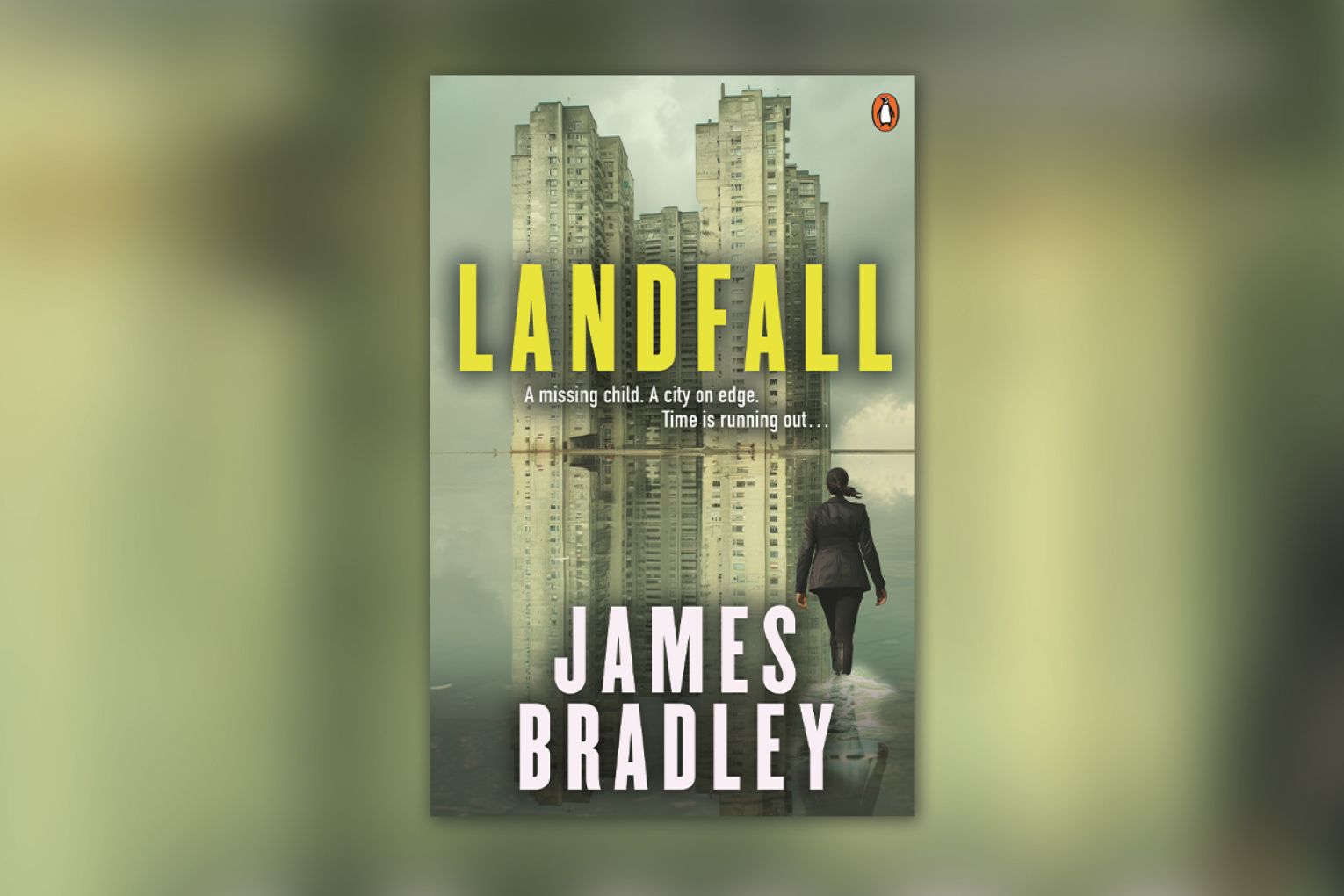Book review: Landfall
This genre-blending novel by Adelaide-born author James Bradley mixes procedural crime beats with gripping scenes of a future devastated by climate change.

The recent deluge of Australian crime fiction, driven by the success of authors like Jane Harper, Chris Hammer and Michael Robotham, has let loose novels of varying quality but there are signs the market is maturing. Long-standing quality crime writers like former South Australian Garry Disher have reached a bigger audience and established writers from outside the field are starting to show interest.
Sydney novelist and academic Gail Jones, whose 2004 book Sixty Lights was long-listed for the Man Booker, released this month The Name of the Sister, a crime story embedded in the barren landscape of old mining leases around Broken Hill. Joining Jones is James Bradley, the internationally awarded ex-Adelaide writer and critic whose diverse stories have covered the resurrection of extinct species, an archaeologist searching for a Portuguese shipwreck, a reimagining of Rapunzel, the ocean, and the intergenerational effects of changing climate.
His latest, Landfall presents like another crime read but feels different from the start. A five-year-old child, Casey, has disappeared and a police officer is being notified but the setting is futuristic. This unsettling lurch into a recognisable near future opens with Detective Azad, who we come to know as Sadiya, being briefed on the incident by the voice of her AI assistant in her ear.
Then another clue. “It’s in the Floodline,” Sadiya says as she hears where the child lived. What follows as Sadiya drives to the address is a grim description of Sydney deep into the catastrophe of climate change; an IKEA overgrown with creepers, a dilapidated Bunnings building with a gaping roof. Further into the flood zone, people live in rusted, decaying squalor, often on the top floors of buildings whose lower levels are in ruins. Parts of Sydney are now third-world and makeshift boardwalks provide access to abandoned homes where climate refugees seek shelter.
Everywhere the heat is relentless with daytime temperatures in the 50s; the morning a glassy glare, afternoons a choking torpor and the nights unbearable. In this new world, children wear trackers but Casey did not have one. Her conspiracy theorist father – nothing new here – thinks they work as a magnet for rich and powerful kidnappers to find and take children.
The police come into closer personal focus, led by Sadiya who is juggling care of her father Arman, a dementia patient whose mind flashes back to the family’s escape from encroaching tides in Senegal and the journey not all of the family survived.
The plot, of course, thickens. A witness, a young homeless man, sees the young girl being pulled into a car and realises later what he has seen. A woman is murdered and police uncover connections to a multi-billion-dollar waterfront rejuvenation project housing three thousand new homes behind a giant seawall in the area where Casey was taken. And there is a race against time as a massive storm front approaches that will kill anyone stranded outside.
Subscribe for updates
The tension is maintained in a style that reflects television police procedurals. The two detectives, Sadiya and Findlay, follow a lead, visit a witness, learn something new and then fill us in with a debrief. “Well, that was interesting,” Findlay said. “Do you believe him?” Sadiya agrees. “Guys like him, they think everything’s a game. You can’t trust a word they say.” It’s a race against time and the clock is ticking.
This is a novel of two parts in which Bradley adopts the dialogue-heavy, scene-moving style typical of the crime genre but intersperses it with patches of gripping scenes of climate devastation that set him apart as a writer of note. His description of Marine Ice Cliff Instability and its cataclysmic effects are exceptionally chilling as we visualise walls of ice, hundreds of metres high, plunge into the sea and forcing tidelines higher.
Readers expecting another Australian crime drama about a missing girl, a city on edge and detectives racing against the clock will find these vivid depictions a bonus.
Landfall (Penguin Random House) by James Bradley is out now
Free to share
This article may be shared online or in print under a Creative Commons licence

